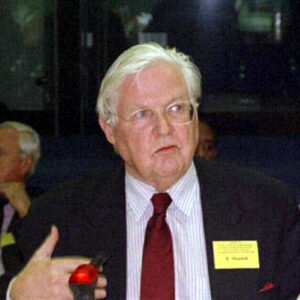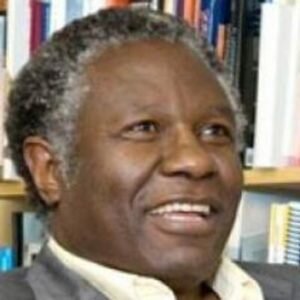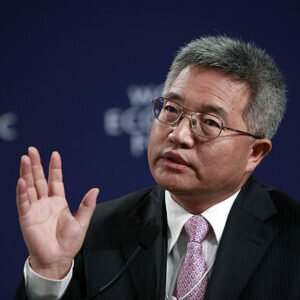Shaukat Aziz
Privatisation and Economic Liberalisation

Image license: CC BY-SA 2.0
Year of Birth
1949
Nationality
PK
Field of Knowledge
Economics
Shaukat Aziz (Urdu: شوکت عزیز; born 6 March 1949) is a Pakistani former banker and financier who served as 17th Prime Minister of Pakistan from 20 August 2004 to 15 November 2007, as well as the a Finance Minister of Pakistan from 6 November 1999 to 15 November 2007. During his childhood he studied at St Patrick’s High School, Karachi. Aziz graduated from the Institute of Business Administration in Karachi, and joined the corporate staff of the CitiBank Pakistan in 1969. He served in various countries’ governments as CitiBank financier, and became executive vice-president of Citibank in 1999. After accepting a personal request by General Pervez Musharraf, Aziz returned to Pakistan from the United States to assume the charge of the Finance Ministry as its finance minister while taking control of the country’s economy. In 2004, Aziz was nominated by the Musharraf loyalist government led by Pakistan Muslim League (Q), to the position of Prime Minister after the resignation of Zafarullah Khan Jamali on 6 June 2004.Aziz’s macroeconomics policies oversaw political stability and economic progress in Pakistan, subsequently ending the “era of stagflation” in 2001. Intensified privatisation and economic liberalisation programmes were personally initiated by Aziz, privatising state-owned corporations and strengthening the country’s economic base, which led the improvement of the country’s growth rate by 6.4% per year. Poverty and inflation rates dropped to 3.5% in the last 3 years, compared to 11–12% in the 1990s. For the first time in Pakistan’s history, all goals and revenue collection targets were met in his tenure, and allocation for development has increased by about 40%. Moreover, despite a series of internal and external distresses, the economic situation of Pakistan improved significantly and reserves increased to US$10.5 billion on 30 June 2004, compared to US$1.2 billion in October 1999. As prime minister, Aziz oversaw the large-scale expansion of military reforms and police reforms, and significant investment in the country that led to the boom of the automotive industry, energy megaprojects, nuclear industry, and the port industry, and presided the unprecedented GDP growth. Aziz’s policy expanded the internet and telecommunication services, and liberalised the private media of Pakistan as his vision to internationalise the image of the country.
| Global Ranking |
|---|
| Ranking History | 2018 | 2016 | 2015 | 2014 | 2013 | 2012 |
|---|---|---|---|---|---|---|
| Global Ranking | 162 | 165 | — | 126 | — | — |




